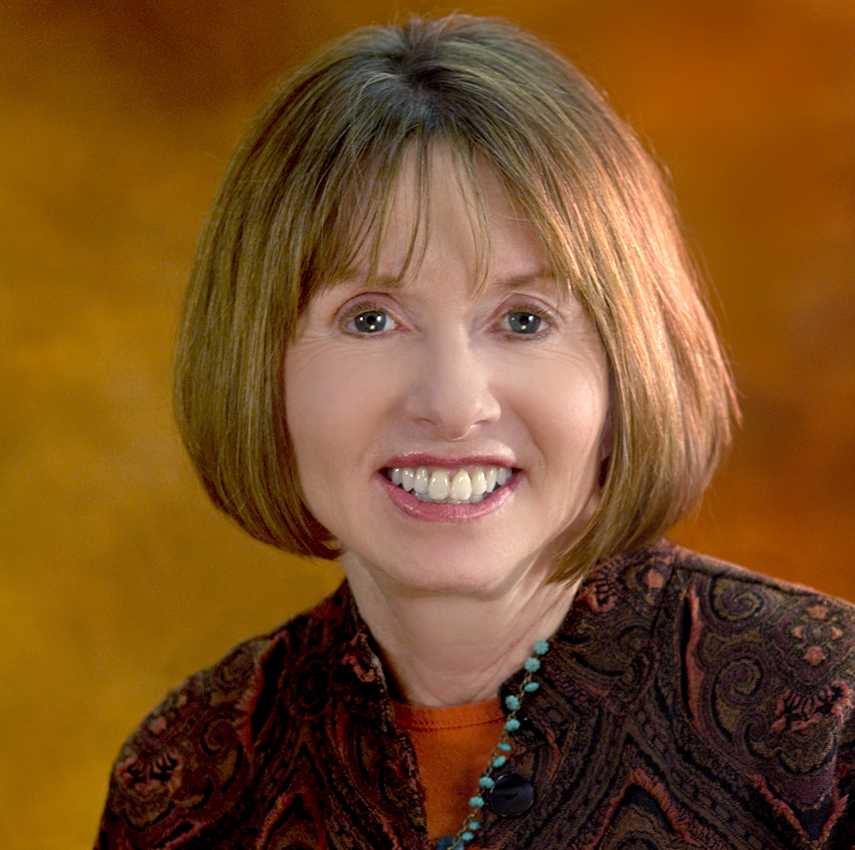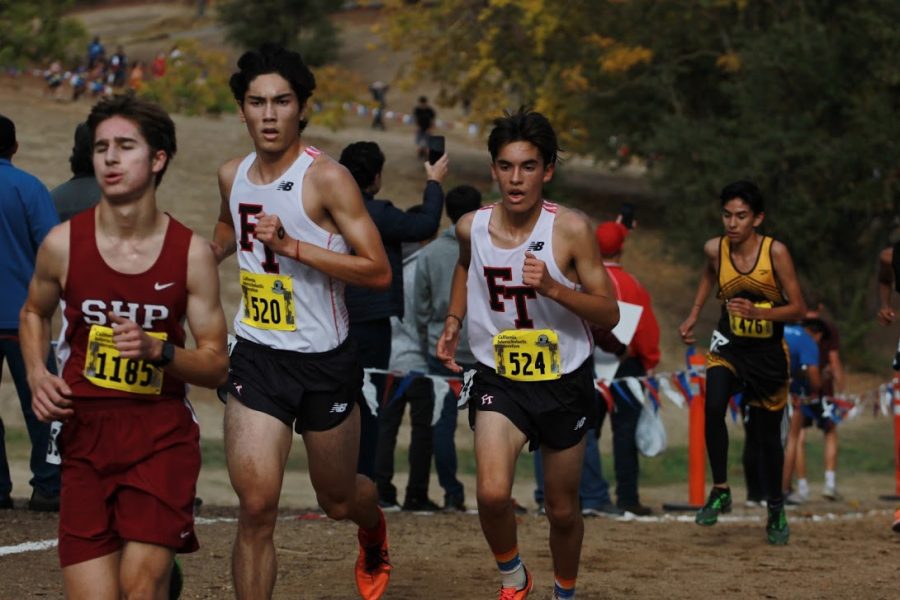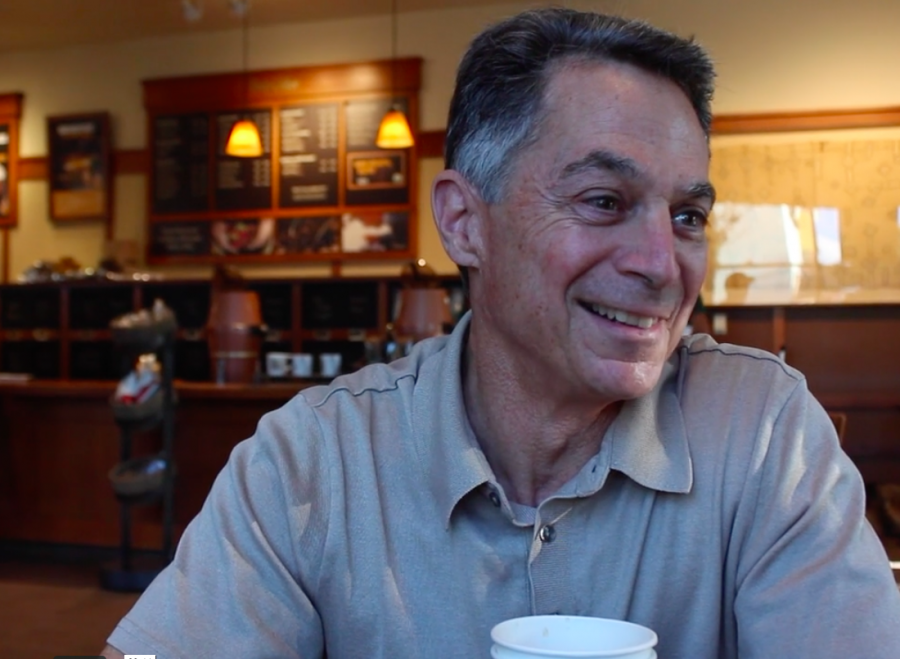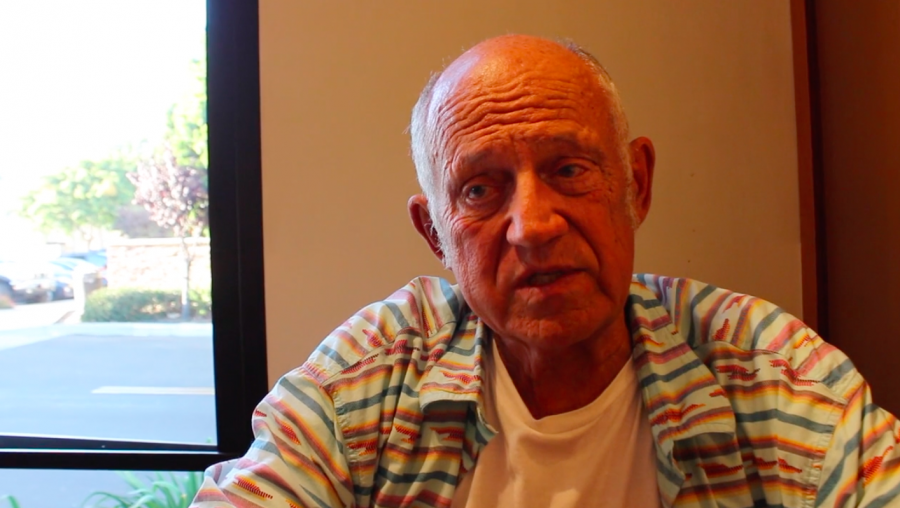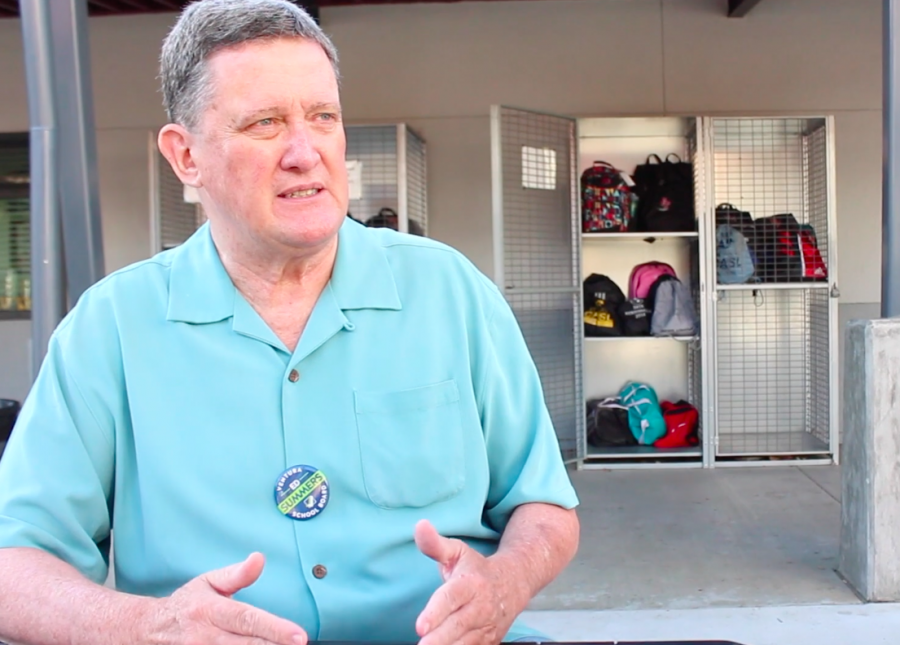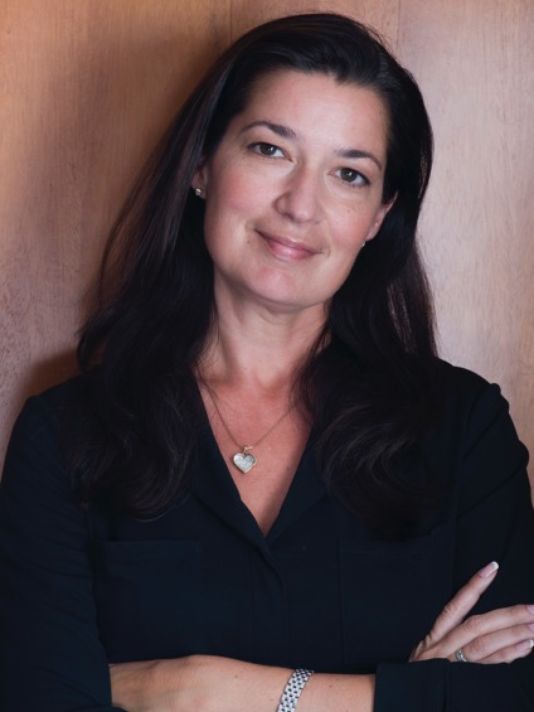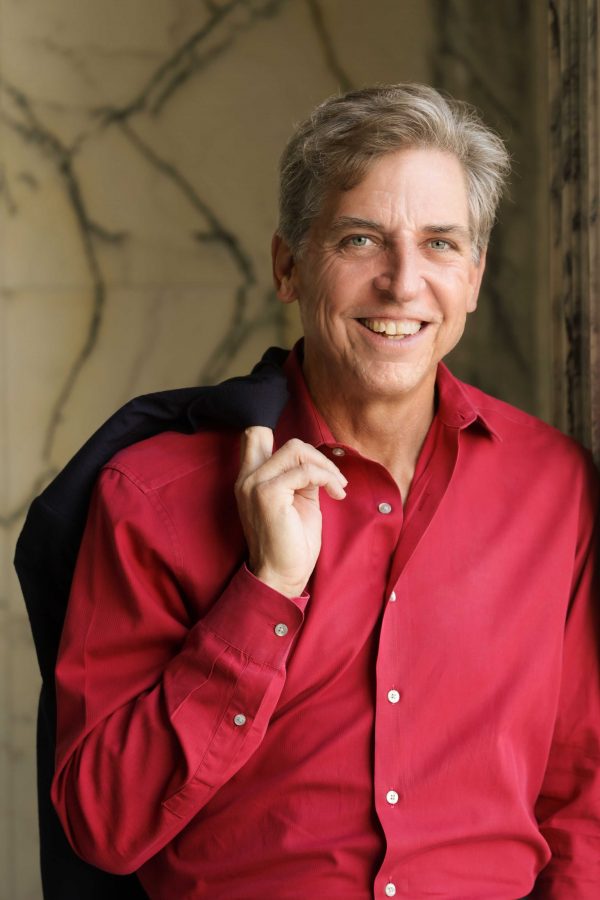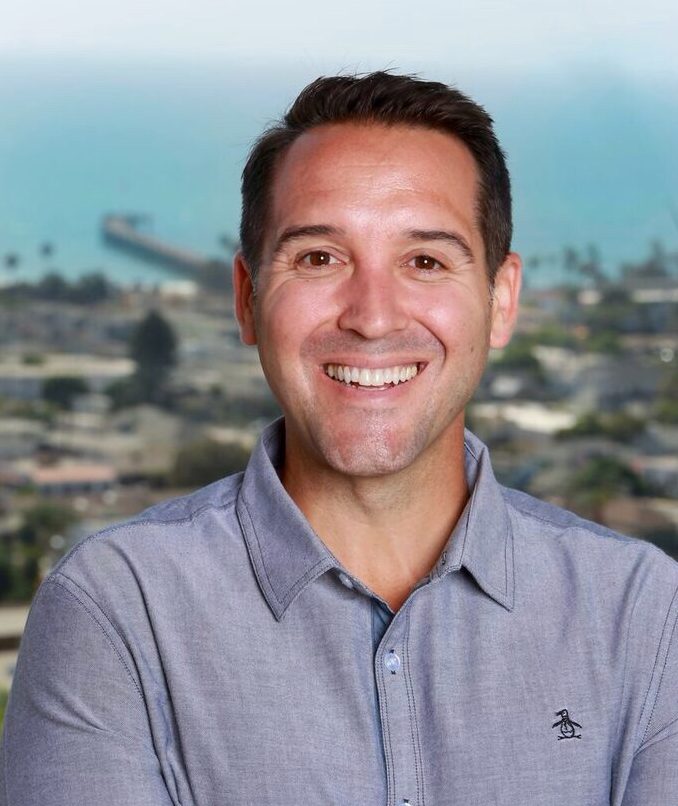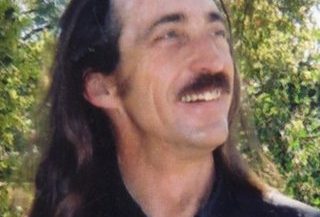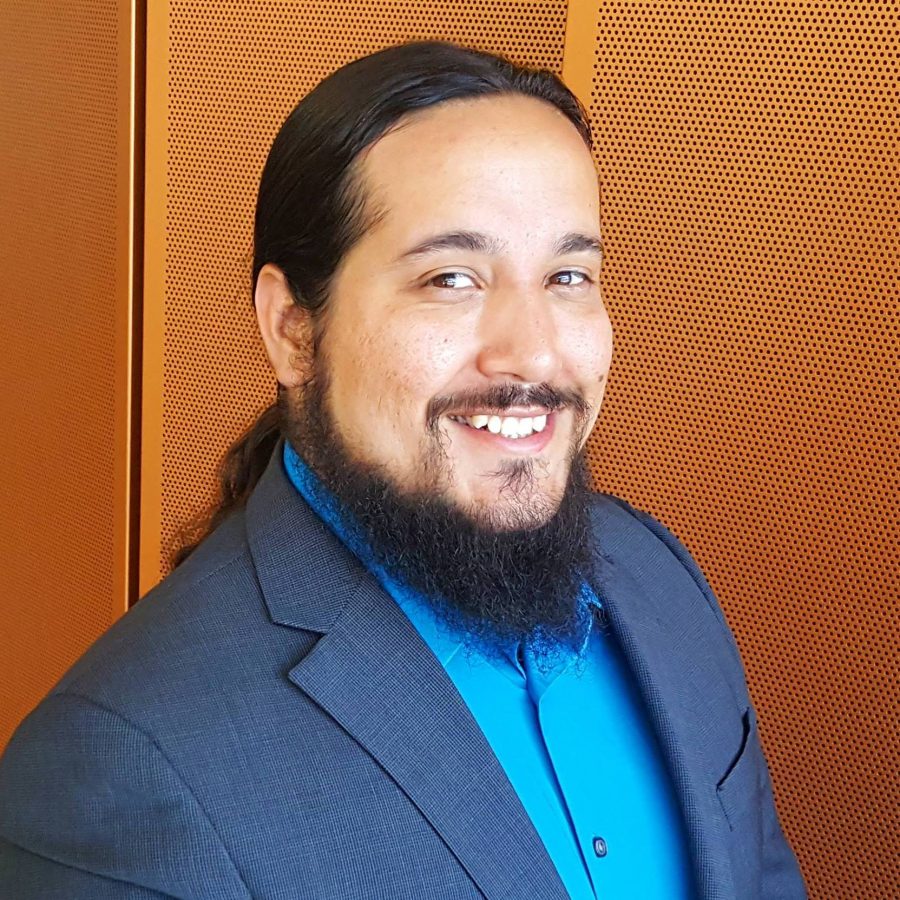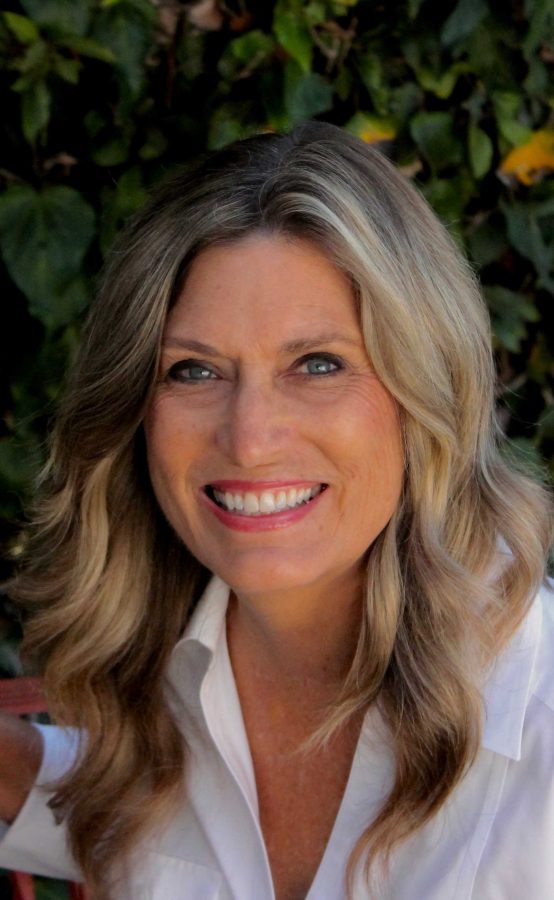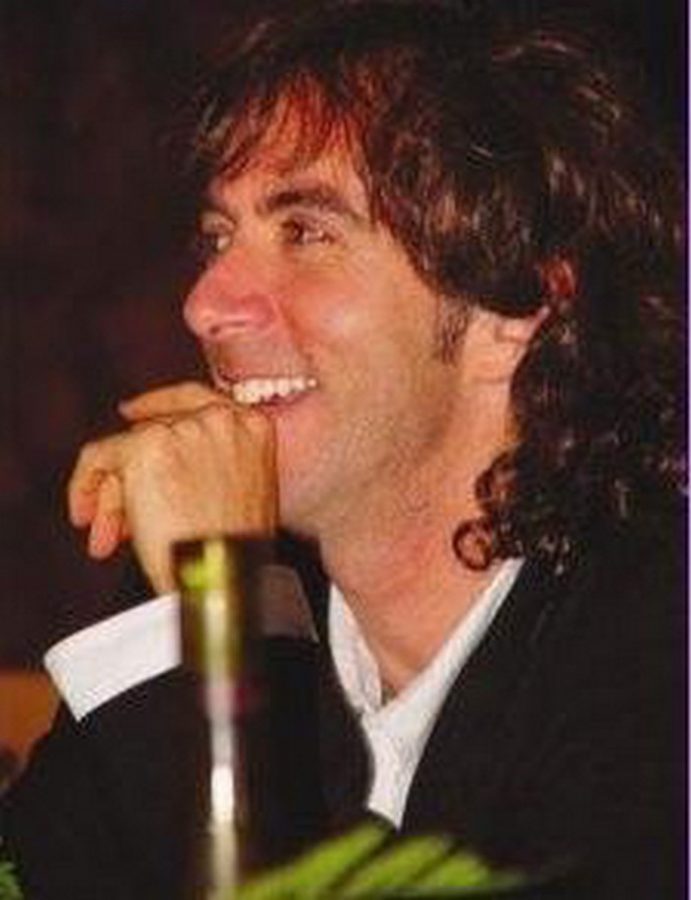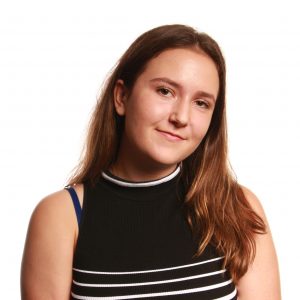INTERVIEWER: What’s your background as a Venturan?
HEITMANN: I don’t understand the question.
What has your childhood or previous life been like in Ventura?
HEITMANN: I didn’t grow up here, I grew up in Chicago.
Is this your first year living here?
HEITMANN: No, I’ve lived here for eight years, and I’ve worked in the city for about eleven or twelve years.
Which measure on the ballot are you most passionate about and why should students and their families also support it?
HEITMANN: Measure O, which is a sales tax generator for the city of Ventura ― half-cent sales tax. I hope people will support it because we need the money. We have a very old city ― 150 years old. We have very old infrastructure, pipes, and all that kind of stuff. Right now we’re basically balancing our budget by deferring our maintenance. We’re not keeping up as we should with our maintenance of the city.
We have a fire station on the east side that was closed during the recession, for a year and a half. It’s being kept open primarily through grants and other one-time funds, so we really need sustainable funding for that fire station. There’s a lot of good reasons to support it.
A lot of the services that people really want include better sidewalks, better roads. We would be able to increase our police force, and there are a lot of things we could to to parks, etc. with that money. I’m hoping that people will support it!
Here’s something important to remember: the state has a half-cent sales tax right now which they are not asking renewal for, which means that really it’s only quarter-cent, because you will not have to pay theirs, so their half-cent goes away and ours comes in, but it’s really only a quarter-cent.
The other important thing is that out sales tax revenues, which we now share with the state, we only take thirteen percent of our sales tax revenue, and everyone else gets the rest. In this case, if it’s our own measure, we keep the whole thing. It’s over ten million dollars per year that we would be increasing.
Two measures it seems Foothill families care about are Measure R and the measure extending the SOAR initiative. Do you support either, both, or neither of these measures?
HEITMANN: What is Measure R again?
It is a local school facility refurbishment measure.
HEITMANN: Oh, right. I do support both of them.
Why is that?
HEITMANN: Measure R is basically an extension of the parcel tax that we are already paying, but I think that it’s important that we support our schools as much as we can. We have great schools, you all know that.
I think that we want to make sure that we continue to have really good schools, and have lower class sizes and have opportunities for students, so it’s really important to support that also. I believe that it’s important to protect our green belts and our agriculture and our open spaces, and so I’m supportive of SOAR.
How do you plan to strengthen the partnership between the school district and the city, and involve more students in local government?
HEITMANN: What a good question! The city and the school district have had a joint committee, where we meet on a regular basis with two council members and two School Board members, and staff to talk about issues that the city and the school district really need to be discussing. I would like to see that meet more often than it actually does.
I think that we need to continue to involve the schools in our planning processes, because when we build additional housing, the school district needs to be at the table in terms of if that means more school, more traffic. I’ve been hearing a lot of complaints about traffic around our schools, so I think that we need to have that kind of partnership where we can have that kind of open dialogue, involving more students.
One of the things I had talked about at the beginning of my term was to form a youth commission. I lived in Thousand Oaks for quite a while and they have a youth commission there, and two of my three children were a part of that. It’s a way of having teenagers get together and talk about what is needed that the city could support.
I didn’t get very far with the idea, but it doesn’t mean that I won’t give up on it. I think it’s a good idea to have an official youth commission that reports directly to the City Council on ideas and has that kind of access would be really important. It worked really well in Thousand Oaks.
What do you think is the most pressing issue facing our city today and how can it be addressed?
HEITMANN: I’m going to say water. You know, we’ve been in a drought for five years, and we have no idea how the rainfall will be like this year. We need to make sure that we have adequate water for everyone, and we need to encourage our residents to continue to conserve. There was an article in the paper [on Oct. 6] that talked about how statewide, people are not conserving at the same level as they were.
We want to make sure that we are conserving in our city. We need to develop new water sources. We have been a pilot project for potable reuse. This is a toilet-to-tap system, so it’s really taking our waste water and treating it to where we can actually use it again. We have had a pilot project for several years doing that, and it’s been really successful. I’ve drank the water many times.
I’ve had Congresswoman Julia Brownley and senator Fran Pavely have been out there with me on tours, and it’s really what we have to do to increase our water sources by about thirty percent, I think. That will be online by 2025.
We need to look at tying into state water. We have the right to have water from Northern California, but we don’t have a way to get it, so we have to be able to tie in about seven miles of piping, so we’re looking into doing that now. We’re doing all kinds of projects where people can conserve on their own at home. New buildings obviously have to be very water-efficient, and if they’re not, then the developers are going to have to pay a big fee to the city that will go into funding our new water sources, and this is called Net Zero.
Our City Council representatives should embody the values closest to our hearts, because these values will guide their decisions in office; they should also act as leaders not only on Monday nights in City Hall but throughout their term in their interactions with the community. What values do you embody, and how do you act as a role model for the youth of Ventura?
HEITMANN: What a big question! Well, I think that one of my real strengths is being out in the community. I’m known as the council member who’s everywhere! When I was Mayor, the last two years, I started “Coffee with the Mayor,” so every month I would go to a different location around the city and be available for people to come by for a couple of hours and talk with me about whatever they want to talk about. It was a great experience, and I learned a lot. People felt like they had access.
I think we have the responsibility, like you said, not just to go to the meetings, but to be in the community, meeting with people, like yourself, and talking about issues, and just being accessible. I just came from spending two hours helping the nonprofit sustainability center, which is in a building right behind the City Hall, being with all the different nonprofit executive directors. There’s the high-tech incubator spaces also right there, so I also went over and talked to some of them too.
I just think it’s really important for us to be really available, and accessible, and listening to the community. This is a job that takes a lot of collaboration; we don’t do this by ourselves. If we’re going to be successful, we have to have the community working with us and working on the issues that the community really wants.
When I was first running, I met this woman on the West Side who wanted another park over there, because there’s nothing in the middle, and it’s a very walkable community. So, I started listening to her and she got other people involved, and it became a real community movement. The land became available for sale, so I was able to connect the Trust for Public Land, which is a huge nonprofit whose mission is to build parks in urban areas, with our city’s staff, who consulted the council on the idea, because they had a fee, which was a hefty fee, but I knew they would be successful.
They’ve raised over two-and-a-half million dollars for what’s known as Kellogg Park, and I’ve gone on and raised some additional funds with the staff. We will start building that park relatively soon, and although we haven’t finished the fundraising, it’s close enough that we can start putting in parts of it and getting it activated.
So, that was a good example of a community of our city, a neighborhood, coming together, and saying that this is what they need, and council then working with them to make that happen. I strive to be a role model for women, who are underrepresented in politics. Only 17 percent of the Congress has been women, and I am only the third female Mayor of Ventura, which is already 150 years old! I am trying to get young people into politics as well.


